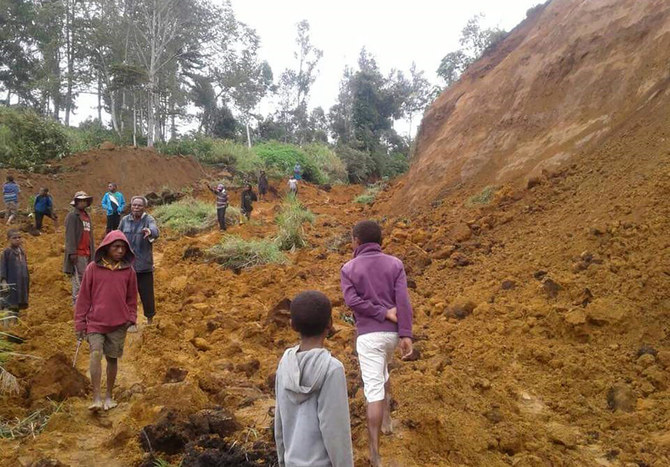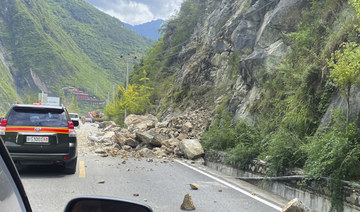JAKARTA/WELLINGTON: A 7.6-magnitude earthquake hit off eastern Papua New Guinea on Sunday, with locals reporting damage to buildings near the town of Madang and further inland.
The US Geological Survey, which reported the quake, issued a tsunami warning but subsequently said the threat “has now passed.”
It did, however, note that there could still be “minor sea level fluctuations in some coastal areas.”
Locals in Madang said they felt “very strong shaking.” There were reports of damage to buildings.
The quake struck at a depth of 61 kilometers (38 miles), about 67 kilometers from the highland town of Kainantu, the USGS said.
The Papua New Guinea quake came an hour after a succession of two earthquakes in the west, in parts of the vast Indonesian archipelago.
The first quake, recorded at 2:10 a.m. local time (UTC+03:00) with a magnitude of 6.1, struck Mentawai Islands off the western coast of Indonesia's Sumatra island, the country's geophysics agency (BMKG) said.
A magnitude 5.3 in the same area 14 minutes later, BMKG reported. Local online media said one person was injured in the head by falling wood.
Renagi Ravu, a geologist, said he was meeting with colleagues at his home in Kainantu when the earthquake struck.
Ravu tried to stand up from his chair but couldn’t maintain his balance and so ended up in a kind of group hug with his colleagues, while plates and cups crashed from his shelves to the ground. His children, ages 9 and 2, had their drinks and breakfast spill over.
The extent of the damage and whether there have been serious injuries or deaths from the quake was not clear in the immediate aftermath in the remote and underdeveloped region.
Ravu said that about 10,000 people live in and around his town of Kainantu, the nearest big town to the quake. He said there are many scattered settlements in the highlands, and tens of thousands of people might have been affected.
On Sunday morning, Ravu was still sorting through the damage to his home, which he said likely included a broken sewer pipe judging from the smell. He said friends elsewhere in Kainantu had messaged him with descriptions of broken pipes and fallen debris, but hadn’t described major building collapses or injuries.
A magnitude 7.5 earthquake in 2018 in the nation’s central region killed at least 125 people. That quake hit areas that are remote and undeveloped, and assessments about the scale of the damage and injuries were slow to filter out.
According to the US Geological Survey, the quake hit at 9:46 a.m. local time. Initial readings put the quake at a depth of some 50 to 60 kilometers (30 to 40 miles).
NOAA has since advised there is no tsunami threat for the area.
The extent of damage is not yet clear, but the USGS estimates “some casualties and damage are possible and the impact should be relatively localized.”
Papua New Guinea is located on the eastern half of the island of New Guinea, to the east of Indonesia and north of eastern Australia.
It sits on the Pacific’s “Ring of Fire,” the arc of seismic faults around the Pacific Ocean where much of the world’s earthquakes and volcanic activity occurs.













